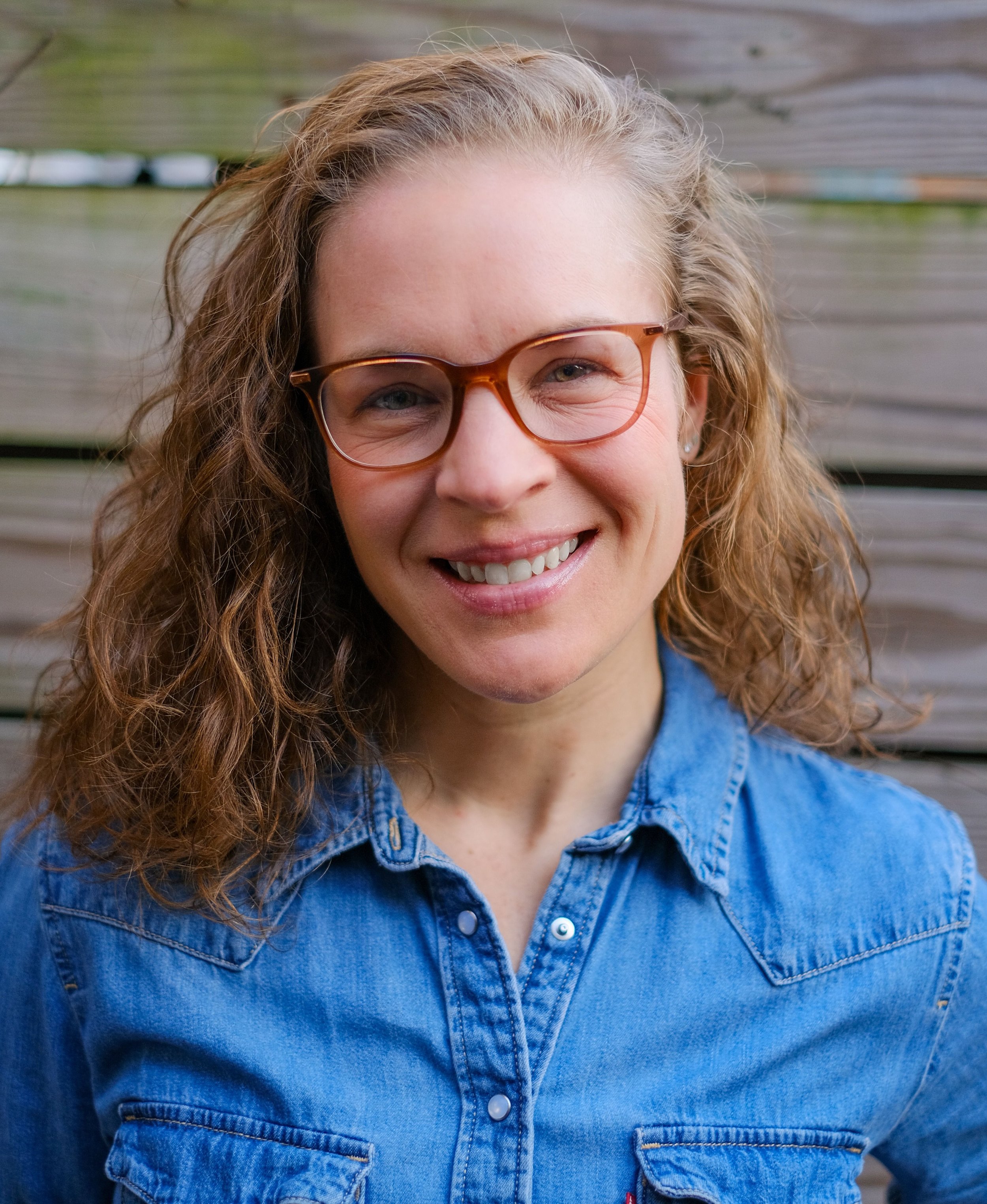Our Team
-

Kim Polese
Kim Polese is a Founder of Common Good AI and a Silicon Valley entrepreneur and technology executive.
Kim serves on the board of the Long Term Stock Exchange and is an adjunct faculty member at the University of California. Kim is an Aspen Institute Crown Fellow and serves on a number of boards, including the Silicon Valley Leadership Group, TechNet, UC Berkeley's College of Engineering, the Long Now Foundation and the Public Policy Institute of California. Kim served on the board of Technorati, Inc. from 2004 to 2006. She is an advisor and investor in several early-stage technology companies.
Previously, Kim served as CEO of SpikeSource Inc., which developed software to automate open source application management. The company was incubated in 2003 at VC firm Kleiner Perkins Caufield & Byers and launched its first products in April 2005. The company was acquired by software company Black Duck in November 2010. Prior to SpikeSource, Kim co-founded Marimba Inc., an Internet-based software management pioneer. She served as president and CEO until 2000, leading Marimba to profitability. She was chairman from 2000 to 2004, when Marimba was sold to BMC Software for $239M.
Before co-founding Marimba, Kim spent more than seven years with Sun Microsystems and was the founding product manager for Java when it launched in 1995. She also influenced the transition of its internal name of "Oak" to "Java".
Prior to joining Sun, Kim worked on expert systems at InteiliCorp Inc., helping Fortune 500 companies apply artificial intelligence to solving complex business challenges.
Until 2015, Kim was a chairman of ClearStreet Inc., a company whose products help employers and their employees reduce their healthcare spend. She is also chairman of CrowdSmart’s board of directors. An advocate of public policy to increase America's innovation capacity, Kim was named to President Obama's Innovation Advisory Board in 2011. The Board guided the Commerce Department's study of US economic competitiveness, delivering a report with recommendations to Congress in January 2012.
-

Dr. Thomas Kehler
Dr. Thomas Kehler is a Founder of Common Good AI. He has over 50 years of experience in Artificial Intelligence.
For the last 25 years, he has focused on applying AI to collective intelligence and how humans think creatively together. His work at the intersection of AI and co-creation has applications to market formation and marketing. He is involved in various industry initiatives to guide the future direction of AI technologies.
With an initial academic focus in physics and computer science, he first focused on deploying innovative technologies while leading a corporate AI lab at Texas Instruments. He moved to the role of an entrepreneur as part of an AI startup founded by four Stanford University professors.
He became CEO of IntelliCorp, the first AI/Expert Systems Company to go public. After IntelliCorp, he was CEO of Connect, a company spun out of Apple Computer. Connect provided robust technology for e-commerce and was one of the first e-commerce companies to go public. At Connect, he became interested in using adaptive learning and AI technologies and engaging with large communities. That resulted in the creation of Recipio, an early social marketing company that enabled large-scale brainstorming between companies and their customers. Recipio’s customers included LEGO, NBC, and Procter & Gamble. Recipio was sold to Informative, where he later became Chairman and CEO. Informative was sold to Satmetrix, where he headed up Community Solutions.
He co-founded CrowdSmart in 2015 and has served as Chief Scientist, CEO, and Board Director over the last eight years. He holds four patents in applying AI technology to amplify human intelligence. Tom has served on the Information Technology Advisory Board of the National Research Council. He has served on various corporate, academic, and nonprofit boards.
Tom received a Ph.D. in applied physics from Drexel University, where he applied early machine learning algorithms to learning models for complex phenomena in magnetic thin films. He has over 20 publications in artificial intelligence, natural language processing, and physics. After completing his PhD., Tom studied field linguistics as a visiting scholar at the University of Texas (UTA), Arlington, and as part of the Summer Institute of Linguistics at UTA. Currently, he is focused on creating highly scalable models that blend human agency and creativity with artificial intelligence agents
-

John Seely Brown
John Seely Brown (also known as JSB) is a Founder of Common Good AI.
He was the Chief Scientist of Xerox Corporation and the director of its Palo Alto Research Center (PARC). While head of PARC, Brown expanded the role of corporate research to include such topics as the management of radical innovation, organizational learning, complex adaptive systems, and nano technologies. He was a cofounder of the Institute for Research on Learning (IRL). His personal research interests include new approaches to learning, digital youth culture, digital media, and the application of technology to accelerate deep learning within and across organizational boundaries—in brief, to design for emergence in a constantly changing world.
JSB is a member of the American Academy of Arts and Sciences, the National Academy of Education, a Fellow of the American Association for Artificial Intelligence and of American Association for the Advancement of Science, and a past Trustee of the MacArthur Foundation. He serves and has served on numerous private and public boards of directors, including Amazon (14 years), Corning, and Varian Medical Systems. He has published over 100 papers in scientific journals and nine books.
He wrote Design Unbound: Designing Emergence in a White Water World (MIT Press, 2018) co-authored with Ann Pendleton-Jullian. With Paul Duguid, he co-authored the acclaimed book The Social Life of Information (Harvard Business Review Press, 2000) that was translated into nine languages with a second edition in April 2002. With John Hagel III, he co-authored the book The Only Sustainable Edge: Why Business Strategy Depends On Productive Friction And Dynamic Specialization (Harvard Business Review Press, 2005) which is about new forms of collaborative innovation and The Power of Pull: How Small Moves, Smartly Made Can Set Big Things in Motion (Land Division, 2010). With Doug Thomas, he co-authored The New Culture of Learning (CreateSpace Independent Publishing Platform, January 2011).
JSB received a BA from Brown University in 1962 in mathematics and physics and a PhD from University of Michigan in 1970 in computer and communication sciences. He also has been awarded eleven honorary doctor degrees from three countries reflecting the breadth and diversity of his research experiences. He is an avid reader, traveler and (former) motorcyclist.
Part scientist, part artist and part strategist, JSB’s views are unique and distinguished by a broad view of the human contexts in which technologies operate and a healthy skepticism about whether or not change always represents genuine progress.
-

Victoria Stanski
Victoria Stanski is the Managing Director for Common Good AI.
Over the past 20 years, she designed and implemented peace building and humanitarian programming in conflict-affected countries, including Syria, Lebanon, Turkey, Yemen, Egypt, Nigeria, Afghanistan, and Pakistan. She served in senior management roles with the international organizations Mercy Corps, the International Rescue Committee, and others to scale humanitarian response to provide lifesaving aid like food, water, health care, etc. to displaced communities. Most recently, she worked with Save the Children on organizational change management to achieve global humanitarian ambitions.
Based in New York, Victoria also collaborates with the organization Artists Athletes Activists who link new migrant and asylum seekers coming from the US southern border to city services, including shelter, food, education, and legal representation. She is also a board member of the Center for Values in International Development, an organization dedicated to operationally applying ethics and values to global development and humanitarian practice. Victoria also supports leadership development and kidnapping for ransom incident management training with a European-based global company.
She studied Cultural Anthropology and African Studies at Smith College and the University of Dar Es Salaam, Tanzania. She has a master’s in International Peace building and Conflict Resolution from American University.
-

Davis Smith
Davis Smith is an Associate for Common Good AI.
Davis graduated from the University of North Carolina (UNC) at Chapel Hill in 2023 with a degree in Computer Science. Before transferring to UNC, Davis attended Samford University in Birmingham, AL where he completed the University Fellows honors program, a “Great Books” curriculum focused on primary source readings and Socratic seminar discussion.
Davis interned at Fleetio, a SaaS startup based in Birmingham, where he worked on the product team. While at UNC, Davis served as an intern and later became a Junior Developer at Buckner Heavylift Cranes, where he created internal tooling and led API integration development. Davis is also an avid sailor; he was a sailing instructor for six summers in North Carolina and most recently taught offshore sailing in the Lesser Antilles.
